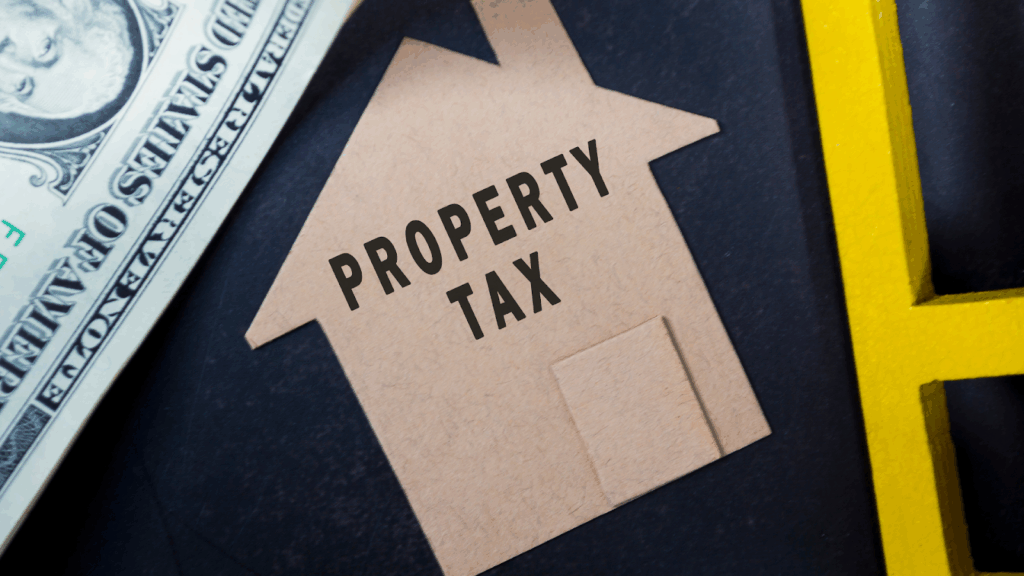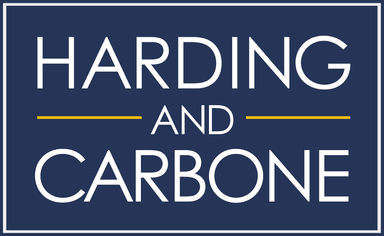
Fort Bend County Taxes: Essential Facts And Payment Steps
September 14, 2025
Key Takeaways:
- Assessment Basics: Property taxes in Fort Bend County are based on appraised value, influenced by comps, improvements, and local conditions.
- Key Deadlines: January 31 is the most critical payment date; missing it leads to penalties and interest.
- Relief Options: Exemptions and protests provide opportunities for property owners to lower their tax obligations.
For more than 40 years, Harding & Carbone has been a trusted leader in property tax consulting across Texas. Our firm has represented thousands of property owners in Fort Bend County and beyond, helping to reduce excessive appraisals and make the property tax system more manageable. With deep local knowledge and a proven track record, we understand how to navigate the complexities of property tax law in one of the fastest-growing counties in the state.
Property taxes in Fort Bend County can be difficult to keep up with, especially as property values shift year after year. Rising home prices, market fluctuations, and new developments often impact appraisals, leaving many homeowners with questions about their tax bills. Understanding how these assessments are calculated, which deadlines apply, and what options exist for payment or protest is the first step toward managing your tax obligations effectively.
In this piece, we will be discussing how property taxes are calculated in Fort Bend County, important deadlines, available exemptions, payment methods, and the steps you can take to protest an assessment if needed.
How Property Taxes Are Calculated In Fort Bend County
Property taxes in Fort Bend County are determined by the appraised value of your property. This value is assessed each year by the Fort Bend Central Appraisal District (CAD) and reflects what your property would likely sell for on the open market. The CAD takes into account a range of factors when determining your property’s taxable value.

Market Value
The primary driver of your tax bill is your property’s market value. If housing demand in your neighborhood is strong or if property sales prices rise, your appraisal may increase.
Comparable Properties
Appraisers often review recent sales of homes similar to yours, called “comps.” Adjustments are then made to account for differences such as square footage, lot size, or upgrades. For instance, if your home is smaller or less updated than a comparable property, the appraised value should reflect that difference.
Home Improvements
Renovations such as a new roof, remodeled kitchen, or room addition can raise the taxable value of your property. While these upgrades often increase the home’s appeal, they can also lead to a higher appraisal.
Economic Conditions
Broader economic changes can also impact property values. Infrastructure development, zoning adjustments, or local market shifts may increase valuations, while declining market conditions could lower them.
From property tax appeals to consulting for commercial portfolios, our firm offers a full range of solutions designed to reduce your tax burden. Explore all of our services to see how we can support your property tax strategy.
Critical Dates For Property Tax Payments
Staying aware of important tax deadlines in Fort Bend County helps you avoid penalties and unnecessary expenses. Property owners should keep these dates in mind each year:
January 31
This is the final day to pay property taxes without penalty. Any amount unpaid after this date begins to accrue penalties and interest.
April 1
Accounts that remain unpaid by this date are subject to additional fees, and delinquent notices are typically sent out. Balances can increase quickly once penalties are applied, so early payment is strongly recommended.
October
Notices of Appraised Value are usually mailed by the Fort Bend Central Appraisal District in the fall. This notice reflects your property’s assessed value for the coming tax year. It’s the first opportunity to review your assessment and consider a protest if you believe the valuation is too high.
Methods For Paying Your Fort Bend County Property Taxes
Fort Bend County provides several payment options so property owners can choose the method that works best for them. Understanding these options can make the process more manageable and help you avoid late fees.
Online Payments
The Fort Bend County Tax Office offers an online portal where you can pay with a credit card, debit card, or electronic check. This method is secure, convenient, and provides immediate confirmation of payment.
In-Person Payments
For those who prefer handling matters directly, payments can be made at the Fort Bend County Tax Office. Accepted forms include cash, check, and card. Staff are available to answer questions about your bill during office hours.
Mail Payments
You may also send a check or money order by mail. Be sure to include your account number on the payment and verify that the envelope is postmarked by the deadline to avoid penalties.
Mortgage Escrow
Many homeowners pay their taxes through an escrow account set up by their mortgage company. In this arrangement, your lender collects funds monthly and pays the tax office on your behalf. It’s still a good idea to confirm with your lender that the payment has been processed correctly.
Automated Drafts
Some taxpayers opt for scheduled bank drafts to avoid missing due dates. With this option, funds are withdrawn automatically from your bank account based on the payment schedule you select.
Exemptions Available For Property Owners In Fort Bend County
Property tax exemptions can provide meaningful relief for homeowners in Fort Bend County. By reducing the taxable value of a property, exemptions lower the total amount of taxes owed. Several programs are available, depending on eligibility:
Homestead Exemption
Homeowners who occupy their property as their primary residence may qualify for a Homestead Exemption. This exemption reduces the appraised value of the property, which in turn lowers the annual tax bill.
Senior Citizen And Disabled Person Exemptions
Individuals who are 65 years of age or older, as well as those with qualifying disabilities, can apply for additional exemptions. These may include a tax ceiling that freezes school district taxes at the amount owed in the first year of eligibility.
Veteran Exemptions
Exemptions are also available for veterans, including disabled veterans and surviving spouses of deceased veterans. These benefits can significantly reduce, and in some cases eliminate, the property tax burden.
Steps To Protest Your Property Tax Assessment
If you believe your property has been overvalued, filing a protest with the Fort Bend Central Appraisal District (CAD) can be an effective way to reduce your tax bill. The process requires preparation, but it can lead to meaningful savings.
Review Your Appraisal Notice
Carefully examine the Notice of Appraised Value sent by the CAD. Confirm that details such as square footage, number of rooms, and property features are accurate. Errors in the description of your home can lead to inflated values.
Gather Comparable Sales Data
Collect information on recently sold homes in your neighborhood that are similar in size, age, and condition to your own. These comparable sales, or “comps,” can help demonstrate if your property has been overvalued.
Account For Differences
Adjust for variations between your property and the comps you’ve gathered. For example, a house with a remodeled kitchen or larger lot may justify a higher value than your own. Highlighting these differences strengthens your case.
File A Notice Of Protest
Complete and submit the required protest form by the deadline listed on your appraisal notice. This step formally notifies the CAD of your disagreement with the valuation.
Prepare For Your Hearing
Protests may involve an informal meeting with an appraiser or a formal hearing before the Appraisal Review Board. Organize your evidence, including comps, photographs, and repair estimates, so you can clearly present your position.
If you’re ready to take the next step in managing your property taxes more effectively, our team is here to help. Reach out today through our contact page to connect with one of our specialists.

Final Thoughts
Managing property taxes in Fort Bend County requires careful attention to appraisals, payment schedules, and available exemptions. By understanding how values are determined and staying on top of deadlines, homeowners can avoid penalties and take advantage of opportunities to reduce their tax burden.
If you receive a Notice of Appraised Value that seems inaccurate, remember that you have the right to protest. With proper preparation, such as reviewing details, collecting comps, and presenting clear evidence, you may be able to lower your assessment and save money over time.
Harding & Carbone has long assisted Texas property owners in navigating these challenges. From reviewing assessments to guiding you through the protest process, our goal is to help keep property taxes fair and manageable.
Frequently Asked Questions About Fort Bend County Property Tax
What office is responsible for handling property taxes in Fort Bend County?
The Fort Bend County Tax Office manages billing and collection, while the Fort Bend Central Appraisal District determines property values.
Can property taxes in Fort Bend County be deducted on federal income taxes?
Yes. Property taxes are generally deductible on your federal income tax return if you itemize deductions, subject to IRS limits.
Are property tax rates the same across all areas of Fort Bend County?
No. Tax rates vary depending on the city, school district, and special districts where the property is located.
How do new developments in Fort Bend County impact property taxes?
Large developments such as shopping centers, schools, or infrastructure projects can raise surrounding property values, which may increase appraisals.
Do agricultural properties qualify for special tax treatment in Fort Bend County?
Yes. Properties used for agricultural purposes may qualify for an agricultural or open-space valuation, which can significantly reduce taxes.
Can property owners view their tax information online in Fort Bend County?
Yes. Both the Fort Bend County Tax Office and the Fort Bend CAD provide online tools for checking property details, values, and payment status.
What happens if property taxes remain unpaid for an extended period?
If taxes remain delinquent, the county can place a tax lien on the property, and in severe cases, initiate foreclosure proceedings.
Are payment plans available for delinquent property taxes in Fort Bend County?
Yes. Payment arrangements may be offered, but eligibility depends on the amount owed and timing of the request. Contact the tax office directly for details.
Do property owners receive receipts for payments made?
Yes. Receipts are provided for in-person and online payments. When paying by mail, you may include a stamped, self-addressed envelope to request one.
How often can property owners in Fort Bend County protest their appraisal?
Property owners can file a protest annually, but only after receiving their Notice of Appraised Value from the CAD each year.
